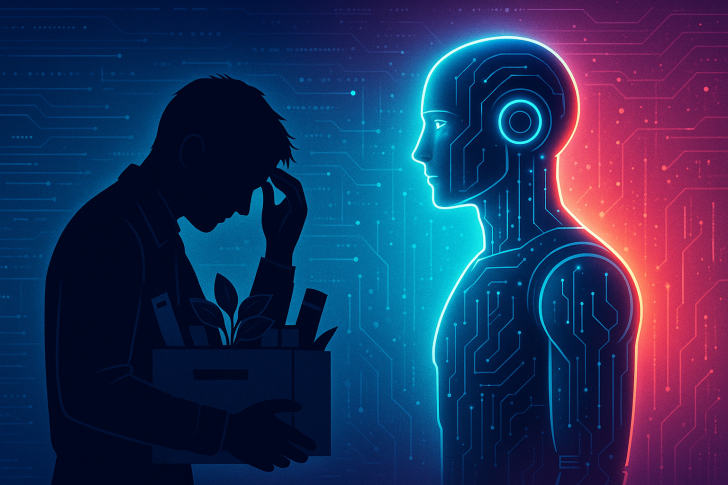⬤ Here's the thing about AI and jobs—it's not a future problem anymore. U.S. companies have openly blamed artificial intelligence for roughly 48,000 layoffs this year, with October accounting for over 31,000 of those cuts. That's one of the sharpest monthly spikes in AI-related job losses we've seen. What's changed? Businesses have stopped pretending automation isn't replacing people.

⬤ Major corporations are rolling out AI tools that handle customer service, administrative work, and internal processes—tasks that used to require actual humans. Tech giants have made automation a core part of their efficiency playbook. Earnings calls now regularly mention how AI systems cut costs by taking over repetitive work, especially as companies pour more money into machine learning platforms.
⬤ The shift is real. Early on, most companies avoided linking layoffs to AI—bad PR, mostly. But now? The technology's impact is too obvious to hide. Corporate disclosures increasingly point to automation platforms and generative AI as reasons for workforce cuts and restructuring. Let's be real: when companies spend billions on AI infrastructure, headcount adjustments follow.
⬤ This trend signals a fundamental change in how businesses think about productivity and costs. AI isn't just a tool anymore—it's reshaping entire business models and how companies allocate labor. As automation speeds up across industries, expect this pattern to continue influencing corporate strategy and workforce planning.
 Alex Dudov
Alex Dudov

 Alex Dudov
Alex Dudov


